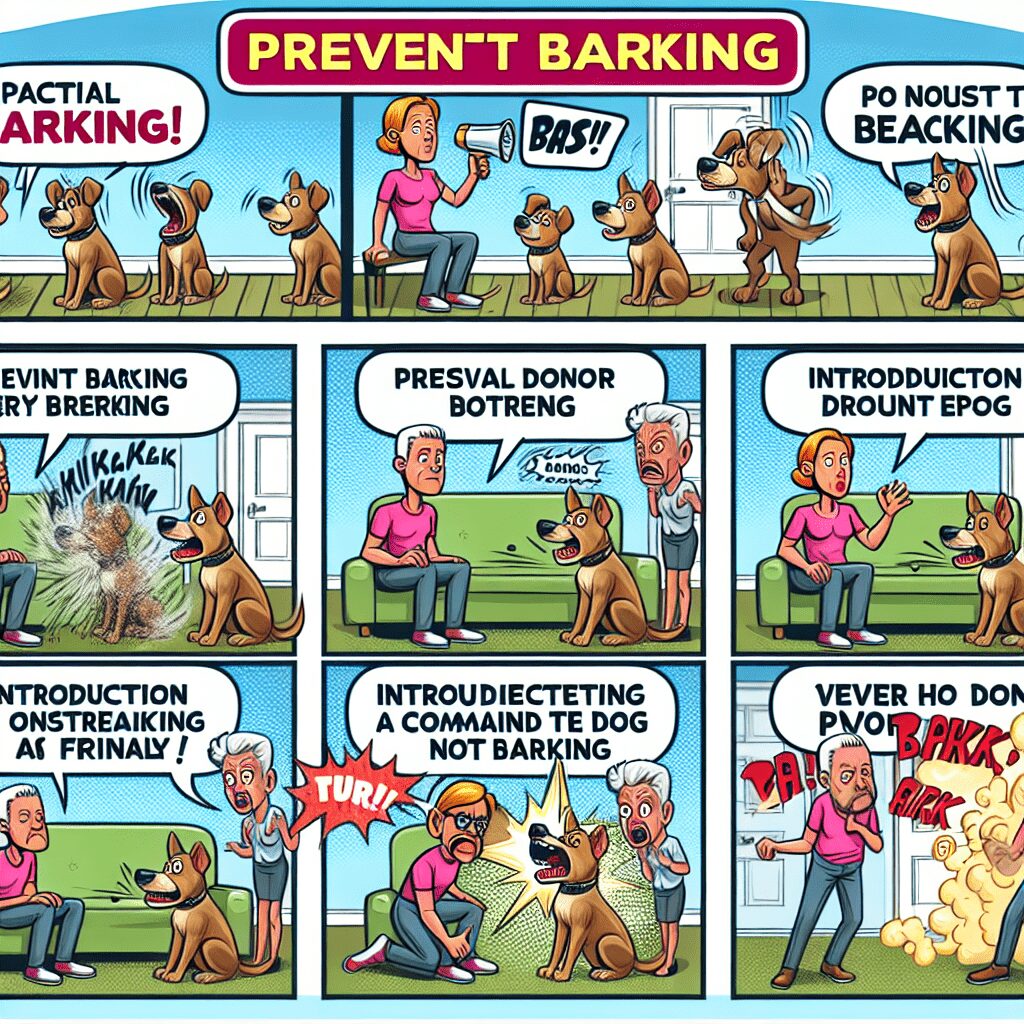Silence the Bark: Proven Techniques to Curb Your Dog’s Excessive Howling
Welcome, fellow dog lovers! If you’re like me, your furry friend is not just a pet; they’re a cherished member of your family. However, as much joy as our canine companions bring, sometimes their vocal expressions can be a little overwhelming. If you’ve found yourself wondering why your pup goes into a full opera mode every time the mailman arrives or while you’re just trying to enjoy a peaceful evening, you’re in the right place! Join me as we explore “Silence the Bark: Proven Techniques to Curb Your Dog’s Excessive Howling.”
In this post, we’ll dive into the reasons behind excessive howling, explore techniques that have been proven to work, and dig deep into how we can establish a peaceful environment for our beloved dogs. Let’s embark on this canine adventure together!
1. Understanding the Howl
Howling is one of the most ancient ways dogs communicate, resonating from their wolf ancestors. Understanding the different motivations behind the behavior is the first step to effectively curbing excessive howling.
Reasons for Howling:
- Communication: Dogs may howl to communicate with their owners or other dogs. If they hear a siren, for instance, they might join in on the chorus.
- Attention-Seeking: A common reason for excessive howling is a desire for attention. If a dog feels ignored, they might resort to vocalizing to get your focus back on them.
- Separation Anxiety: Dogs are social creatures and may howl when they feel lonely or anxious, especially when left alone for extended periods.
- Territorial Behavior: Some dogs howl to warn off perceived intruders—from the mailman to other dogs wandering by.
Understanding these motivations will assist in determining the appropriate course of action in addressing the issue.
2. Creating a Calm Environment
Before attempting strategies to curb excessive howling, it’s vital to ensure that your dog’s environment is as calming as possible.
Techniques for a Calmer Space:
- Quiet Zones: Designate a cozy area where your dog can retreat when feeling overwhelmed. Comfortable bedding, familiar toys, or a piece of your clothing can help soothe their nerves.
- Background Sound: Some dogs respond well to white noise machines or calming music specifically designed for pets, drowning out sudden noises that may trigger howling.
- Exercise and Stimulation: A sleepy dog is a quiet dog! Ensure your pup gets plenty of physical and mental exercises throughout the day to channel their energy positively.
By creating a comfortable environment, your dog may feel less inclined to howl at minor disturbances.
3. Positive Reinforcement Training
One of the most effective and humane ways to curb excessive howling is through positive reinforcement training.
Training Techniques:
- Teach ‘Quiet’ Command: Start by teaching your dog the ‘quiet’ command. When your dog begins to howl, wait for a brief moment they pause, and reward them with a treat when they stop. Repeat this process to build understanding.
- Redirect Attention: If your dog howls for attention, redirect their focus to a toy or a training exercise. The goal is to replace the howling behavior with a more desirable one.
- Consistent Routine: Be consistent with training schedules. Regularly reinforcing positive actions helps your dog understand what is expected and appreciated, decreasing their vocalizations over time.
4. Addressing Separation Anxiety
If your dog’s howling stems from separation anxiety, it’s crucial to tackle this issue with patience and compassion.
Methods to Alleviate Anxiety:
- Gradual Desensitization: If your dog suffers from separation anxiety, start by leaving them alone for short periods and gradually increasing the duration as they become more comfortable.
- Comfort Items: Leaving behind a favorite toy or an article of your clothing may provide comfort while you’re away.
- Practice Goodbyes: Keeping goodbyes short and positive can help reduce anxiety. Prolonged farewells can increase worry in your dog and lead to more howling.
Remember, anxiety is something that requires time and patience to manage.
5. Professional Help
In some cases, excessive howling may be symptomatic of more profound behavioral issues. Should your attempts to silence the bark prove ineffective, reaching out for professional assistance may be beneficial.
When to Seek Help:
- Extreme Behavior: If your dog exhibits signs of distress, aggression, or fearfulness, consulting a veterinarian or a professional dog trainer is critical. They can provide insight tailored to your specific situation.
- Training Courses: Enroll in a dog training class where the trainers can provide personalized feedback and suggestions based on your dog’s unique needs.
Remember, it’s never too late to seek help! Every dog is an individual, and what works for one may not work for another.
6. Identifying Triggers
Taking the time to understand what specifically triggers your dog’s howling can offer valuable insights into how to curb the behavior effectively.
Common Triggers:
- Loud Noises: Sirens, thunderstorms, and loud vehicles can be distressing for sensitive dogs.
- Strangers or Other Dogs: Some dogs howl to assert their territory or become anxious in the presence of new people or animals.
- Boredom: A lack of stimulation or boredom can lead to vocalization as a means of coping.
Keeping a journal to jot down when howling occurs can help identify patterns that you can then aim to redirect or reduce.
7. Natural Remedies and Products
In addition to behavioral training and creating a calming environment, various natural remedies and products may help reduce howling.
Popular Options to Consider:
- Calm Collars: These collars release pheromones designed to soothe dogs and help with anxiety.
- Supplements: Natural calming supplements containing ingredients like chamomile or valerian root may help to ease anxiety in dogs, thus reducing howling incidents.
- Adaptil Diffusers: These plug-in devices release calming pheromones similar to those produced by a mother dog, offering comfort to nervous pups.
Always consult your veterinarian before introducing new products or supplements to ensure they’re suitable for your dog.
8. Consistency and Patience
Curbing excessive barking takes time. It’s vital to remain patient and consistent in your approach, reinforcing positive behavior while gently correcting unwanted vocalizations.
Helpful Tips:
- Set Realistic Goals: Progress can be slow, but setting achievable goals can help keep your spirits high.
- Positive Mindset: Celebrate small victories, like a pause in Howl in response to your training efforts. Your encouragement acts as a powerful motivator for your furry friend.
- Avoid Punishment: Negative reinforcement can often backfire, creating additional anxiety or fear in your dog, which may intensify their howling.
Remember, every dog is unique, and while some techniques may resonate better than others, staying committed to your training will help strengthen the bond between you and your pup.
Conclusion
While excessive howling can be challenging for dog owners, it’s essential to understand its root causes and implement effective training techniques. With a bit of patience, consistency, and understanding, we can help our furry friends express themselves in quieter, healthier ways. Let’s create harmony at home while showering our beloved dogs with the love and attention they need!
FAQs
Q: Why does my dog howl every night?
A: Dogs may howl at night due to loneliness, boredom, or anxiety. Establishing a calming nighttime routine, exercising during the day, and providing companionship can help.
Q: Is howling a sign of a problem?
A: Not necessarily. Howling is a natural form of communication for dogs, but excessive howling may indicate underlying anxiety or other behavioral issues that require attention.
Q: Can training stop my dog from howling?
A: With consistent training and positive reinforcement, it is possible to reduce or cease excessive howling behavior.
Q: Should I ignore my dog when he howls?
A: Ignoring the howling can work if the behavior is attention-seeking; however, if anxiety or fear is causing the howling, you may need to implement different strategies.
Q: Are there any medications that can help with excessive howling?
A: While some dogs may require medication for anxiety, it’s crucial to consult with your veterinarian for personalized recommendations before proceeding.
Unlock the Secrets to a Well-Behaved Dog! 🐾 Tired of your pup’s bad habits? Discover how to transform your unruly dog into a loving companion with our FREE Dog Training Mini Course! Learn essential commands, potty training tips, and effective techniques to eliminate unwanted behaviors in just days. Don’t miss out—sign up now and start your journey to a happier, obedient dog! Join Here! (https://bit.ly/3RJak0a)
Instantly Access Your Free Children’s Books Here! (https://payhip.com/BlueCherryStore) –
Disclaimer: I may earn a commission from qualifying purchases as an affiliate. Please note that I only recommend products I believe will provide value to my readers.(M)









